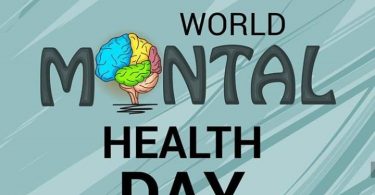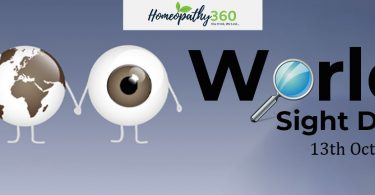ABSTRACT- Psychosis is a serious mental disease defined as ‘’loss of ego boundaries’’ that interferes with satisfying the stress of life. Antipsychotics are a category of psychotropic medication that are used to manage psychosis.
Keywords– Antipsychotic, Homoeopathic intervention.
Introduction– True psychosis usually involves symptoms like delusion &/or paranoia. Psychotic disorders focus mainly on the symptoms where the person is detached from reality, and hence the main symptoms are delusions and paranoia.
According to ICD-10, psychosis is characterised by the presence of hallucinations, delusions, or hallucinations without insight.
According to DSM-5, the presence of formal thought disorder, hallucinations & delusion defines the presence of psychosis.
Antipsychotic drugs are the drugs that treat certain types of mental diseases. These medications treat disorders like schizophrenia or manic depression. The purpose of a major tranquillizer is to scale back the symptoms of psychosis.
They’re of two types: Typical & Atypical Antipsychotic drugs. several mental conditions that will be treated with antipsychotic drugs like Schizophrenia & Delusional Disorders, manic depression, Delirium and Dementia.
Schizophrenia means ‘mental splitting.’ Psychotic symptoms of schizophrenia involve Delusion of persecution; reference; grandeur, control & Somatic delusion.
Bipolar Disorder is the presence of recurrent episodes of mania and depression within the same person at different intervals. Manic episodes occur secondary to Delusion of persecution & delusion of grandeur, and Visual & auditory hallucinations. Since these psychotic symptoms are in congruence with elevated mood, thus these are Mood congruent psychotic symptoms.
Depressive episodes involve Delusions of guilt; poverty, and nihilism which are in congruence with the mood, the mood-incongruent features involve Delusions of control.
Delirium is a short-lived state of mind which is characterized by confusion, anxiety, incoherent speech and hallucinations. Psychotic features involve perceptual disturbances like Illusions and hallucinations.
Delusional disorder is a paranoid disorder. it’s a false fixed belief and it should be present a minimum of for 3 months. Psychotic symptoms are Delusions of persecution; grandeur; Jealousy; Somatic delusions, Erotomaniac delusions and Non-bizarre delusions.
Dementia is the impairment of intellectual functions of memory and personality deterioration with a scarcity of private care. Psychotic symptoms of dementia are hallucinations, delusions, paranoid or persecutory delusion.
Since we discussed various disorders during which antipsychotic medicines are used, before discussing their uses and their role, we must define antipsychotic medicines with their role, benefits and potential side effects.
What are antipsychotics?
Antipsychotics are a category of psychotropic medicines that manage psychosis. There are two sorts of antipsychotic medicines:
Typical and atypical antipsychotic medicines. Typical antipsychotics, also called first-generation antipsychotics can cause extrapyramidal control disabilities and can have more side effects but fewer withdrawal symptoms. These include Chlorpromazine, Fluphenazine, Loxapine, Haloperidol, Thioridazine etc.
Atypical antipsychotics, also called new-generation antipsychotics, have less likely to cause extrapyramidal motor disabilities and have fewer side effects but can have more withdrawal symptoms. These include Clozapine, Risperidone, Aripiprazole, Quetiapine etc.
ROLE OF ANTIPSYCHOTIC MEDICINES IN TREATING VARIOUS MENTAL DISORDERS
All antipsychotics work by changing the usage of neurotransmitters by the brain. Cells throughout the nervous system have receptors, which behave like locks on their surfaces and therefore the neurotransmitters act as sort of a key with a selected shape.
A neurotransmitter with the right shape if attached to the receptor, can activate the cell. However, albeit the neurotransmitter is in the right shape, there’s an opportunity that it doesn’t activate the cell.
As discussed above, antipsychotics believe lock-key system for neurotransmitters and receptors in several ways:
FIRST GENERATION ANTIPSYCHOTICS block the neurotransmitters mainly dopamine. Others include Acetylcholine, Histamine and Norepinephrine.
SECOND-GENERATION ANTIPSYCHOTICS block dopamine and serotonin receptors, however, they also activate certain dopamine and serotonin receptors, unlike the standard ones. This is often the way atypical antipsychotics are different from psychotic ones.
ADVANTAGES AND DISADVANTAGES OF ANTIPSYCHOTIC MEDICINES Antipsychotic medicines are known to cause a discount in symptoms of auditory hallucinations, delusions, confused thinking and mood changes.
But everything has its pros and cons. There are many consequences of prolonged use of antipsychotics which can pose potential risk factors. These include uncontrolled muscular movements, tremors and rigidity, loss of balance with dizziness, overproduction of saliva, sedative effects, reduced libido, male erectile dysfunction in males, hypotension, neuroleptic malignant syndrome (fever, rigidity, altered psychological state, impulse control disorders and behavioural addictions, and eventually elevated prolactin levels in females. Its prolonged effect also can cause dryness of membranes and weight gain.
HOMOEOPATHIC APPROACH IN PSYCOTIC DISORDERS
Dr Hahnemann described mental illnesses in Aphorism:
210-230 and their treatment of mental illness and who manages the mental disease with homoeopathic medicine.
According to Organon of Drugs, 5th edition, §210 says most mental diseases are psoric in origin, with being chronic in nature.
215-220 tells about mental diseases which are of physical origin, this tells that those corporeal diseases which were fatal were transformed into mental diseases, thus soothing physical diseases.
Here, appropriate antipsorics need to be prescribed covering both physical and mental symptoms.
221-223 tells about mental diseases from acute excitation like fright, vexation, abuse of spirituous liquor etc. Here, initially, non-antipsoric medicine is to be prescribed like Belladonna, Stramonium, Hyoscyamus, Mercurius etc. At last, treatment has got to be completed with antipsoric medicine.
224 tells about Mental diseases of doubtful origin which arise from fault in education, bad practices, corrupt morale, neglect of mind, superstition or ignorance. These are often treated by help-seeking behaviours and counselling through psychiatrists.
225-230 tells about Mental diseases of emotional origin developed thanks to continued anxiety, worry, vexation, wrongs and frequent occurrences of great fright and fear. Their treatment comprises appropriate antipsoric remedies alongside proper diet and regimen.
But as mentioned above, all mental diseases aren’t psoric in origin, some also show sycotic symptoms. These include Inco-ordination of mind and body, suspiciousness about oneself et al., jealousy, fixed ideas, self-condemnation, continuous brooding, destructive anger, weakness of memory and suicidal feeling with feelings of inferiority.
Repertory plays a serious role in the selection of appropriate medicine for psychotic disease. consistent with Kent repertory, rubrics of mental conditions are:
MIND- DELUSION, IMAGINATIONS, HALLUCINATIONS, ILLUSIONS
MIND- CRAZY (SEE INSANITY, DELUSIONS)
MIND-SCHIZOPHRENIA
MIND-DELUSION- body divided, is
MIND-DELUSIONS- superhuman; is control; is under superhuman
MIND-DISTRUSTFUL (SEE SUSPICIOUS)
MIND-JEALOUSY
MIND-QUARRELSOME- jealousy from
MIND-THOUGHTS- persistent
MIND-CONFIDENCE- want of self
MIND-SUICIDAL DISPOSITION
Medicines that play an important role in psychotic disorders are:
THUJA OCCIDENTALIS- This medicine is prescribed to patients who have fixed ideas and feel as if a strange person is at their side. Also, he feels as if his soul and body are separated or as if there’s something alive present in his abdomen. The patients generally show Gravougl’s Hydrogenoid Constitution. Dislike potatoes and fresh meat, cannot eat onions.
MEDORRHINUM -This medicine is prescribed in patients with weak memory with difficulty concentrating, for him time passes too slowly. He’s hopeless of recovery, he fears going insane, fears dark and being persecuted. he’s melancholic and has a suicidal disposition. The patient shows a history of sycosis. A Peculiarity of this medicine is the great irritability of the nervous system.
HYOSCYAMUS -This medicine is prescribed to patients who are talkative however sometimes they’re averse to answering what’s asked of them, have persistent thoughts, are suspicious and show jealousy. They show a personality of constant muttering with restlessness at both physical and mental levels. Low memory with partial insight about his disease, they show characters of lascivious mania with a bent to uncover their body. It causes an ideal picture of mania of quarrelsome and obscene character.
STRAMONIUM- These patients have auditory hallucinations, they hear voices; also they need visual hallucinations, they see ghosts and animals. These people are highly religious in nature. These people have delusions about their identity, they consider themselves as tall or double, and even have a delusion that their one part is missing. they need a desire to flee from situations. All they see in their life is darkness, hence they always require a luminary in their lives. They show constant mood swings, from joy to rapid sorrow.
BELLADONNA- Patient is usually engrossed in his thoughts and lives in his own world. Complaints of visual hallucinations, particularly monsters. they need a desire to flee from things. Loss of consciousness with prominent changeability. it’s a remedy that holds great violence and is suitable for plethoric, vigorous and intellectual people. Excitement and violence run through the whole mental system. These people are wild, and have a bent to strike, bite, tear things, and do unusual things.
CONCLUSION– We saw above that antipsychotic medicine may show serious disadvantages to the physical body if used for extended periods. Homoeopathic treatment is predicated upon a holistic approach, it treats not only the patient’s disease, rather it treats the patient as an entire in its minimum dosage of most similar medicine with the least side effect.
REFERENCES-
- Kaplan HI, Sadock B. Synopsis of psychiatry: Behavioral sciences, clinical psychiatry. 8th ed. Philadelphia, PA: Lippincott Williams and Wilkins; 1998.
- Ahuja N. A short textbook of psychiatry. New Delhi, India: Jaypee Brothers Medical; 2011.
3) www.medicalnewstoday.com/articles/best-medication-for-psychosis#short-and-long-term-treatment
4) www.psychiatrictimes.com/view/understanding-risks-and-benefits-antipsychotic-polypharmacy
5) www.columbiapsychiatry.org/news/benefits-antipsychotics-outweigh-risks-find-experts
6) www.sciencedirect.com/science/article/abs/pii/B9780128033760000149
7) www.my.clevelandclinic.org/health/treatments/24692-antipsychotic-medications
8) Kent JT. Repertory of the homoeopathic materia medica and a word index. New Delhi, India: B Jain; 2004.
9) Saine A. Teachings: Psychiatric patients, pure classical homeopathy. New Delhi, India: Leads Press; 2008.
AUTHOR:
DR. PARIDHI PARMAR,
PG SCHOLAR,
DEPT. OF HOMOEOPATHIC PSYCHIATRY,
GOVT. HOMOEOPATHIC MEDICAL COLLEGE & HOSPITAL, BHOPAL
GUIDED BY: DR SANTOSH HANDE HOD
(DEPT. OF HOMOEOPATHIC PSYCHIATRY) GOVT. HOMOEOPATHIC MEDICAL COLLEGE & HOSPITAL, BHOPAL





